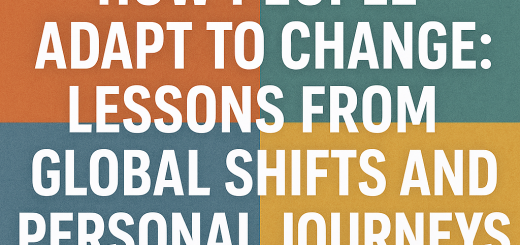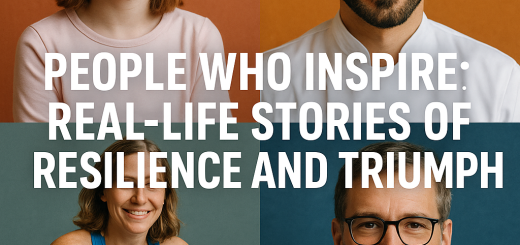Why People Volunteer: The Surprising Benefits of Helping Others
In a fast-moving world filled with busy schedules and constant distractions, volunteering might seem like just another task to add to the list. But for millions of people around the globe, volunteering is not a burden—it’s a source of joy, connection, and purpose. While helping others is often seen as a generous act, studies and real-life experiences reveal something even more powerful: volunteering can improve your own life in unexpected ways.
On our platform, we believe that inspiring stories and helpful advice can encourage positive action. In this article, we’ll explore why people volunteer, the surprising benefits that come with it, and how you can get started, no matter your background or schedule.
The Many Reasons People Choose to Volunteer
People volunteer for a wide range of reasons. For some, it’s about giving back to their communities. For others, it’s a way to support a cause they care about, such as protecting the environment, helping animals, or supporting children in need.
Many students volunteer to gain experience or build skills for future careers. Retirees often see it as a way to stay active and connected after leaving the workforce. Others are motivated by religion, personal values, or the simple desire to make a difference.
But no matter the reason, one thing is clear: people volunteer because it feels meaningful. Volunteering gives individuals the chance to be part of something bigger than themselves.
Mental Health Benefits: Boosting Mood and Reducing Stress
One of the most surprising advantages of volunteering is its effect on mental health. Helping others can trigger the release of feel-good chemicals in the brain, such as dopamine and endorphins. This can create what some call a “helper’s high”—a warm feeling that lifts your spirits.
Regular volunteering has been linked to reduced rates of depression and anxiety. When people focus on others, they often take a break from their own worries. Being part of a team or a cause can also reduce feelings of loneliness and isolation, especially among older adults.
Building Confidence and New Skills
Volunteering is a great way to grow personally and professionally. It allows people to step out of their comfort zones, try new things, and take on leadership roles. Whether you’re organizing a community event, helping at a food bank, or mentoring youth, you’re likely learning valuable communication, teamwork, and problem-solving skills.
These experiences not only boost confidence but can also look great on a resume or college application. In some cases, volunteering has even led to job offers or career changes.
Creating Stronger Social Connections
Volunteering connects people from different backgrounds, ages, and lifestyles. Whether you’re planting trees in a local park or helping at a hospital, you’re likely to meet people who share your interests or values. These connections often lead to lasting friendships, community involvement, and a stronger sense of belonging.
Especially in today’s digital world, where online communication can feel shallow, real-life volunteering offers meaningful, face-to-face interaction.
Physical Health Improvements
Believe it or not, volunteering can also improve your physical health. According to some studies, volunteers tend to have lower blood pressure, better sleep, and even longer lifespans. This may be due to the reduced stress and increased activity involved in volunteer work.
Active roles—like cleaning up beaches, walking shelter dogs, or serving meals—can add regular movement to your routine, helping you stay fit without going to the gym.
Giving Is Receiving
What’s most surprising to many volunteers is how much they get back. At first, they may sign up to help others—but they often find that the experience changes their own lives. They feel more grateful, more connected, and more motivated.
As one long-time volunteer put it: “I started volunteering to help people in need, but in the end, they helped me even more. I found purpose, strength, and joy I didn’t know I was missing.”
How to Get Started with Volunteering
You don’t need special skills, lots of time, or even money to become a volunteer. The key is to find a cause you care about and start small. Here are a few simple steps:
- Identify your interests – What causes are close to your heart? Education, animals, nature, health?
- Look local – Schools, community centers, shelters, and libraries often need help.
- Start small – Even a few hours a month can make a difference.
- Be open – Sometimes the most unexpected opportunities are the most rewarding.
You can also volunteer online, offering your skills in writing, translation, tutoring, or graphic design from home.
Final Thoughts
Volunteering is one of the most powerful ways to make the world a better place—and improve your own life at the same time. It brings people together, strengthens communities, and reminds us of the kindness still alive in the world.
At our official platform, we encourage you to explore the benefits of helping others. Whether you’re young or old, busy or retired, everyone has something valuable to give. And when you do, you might just discover that you’ve gained more than you ever expected.

